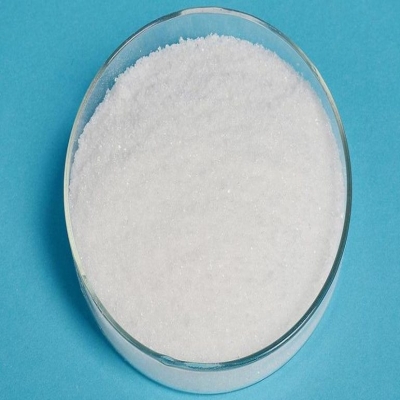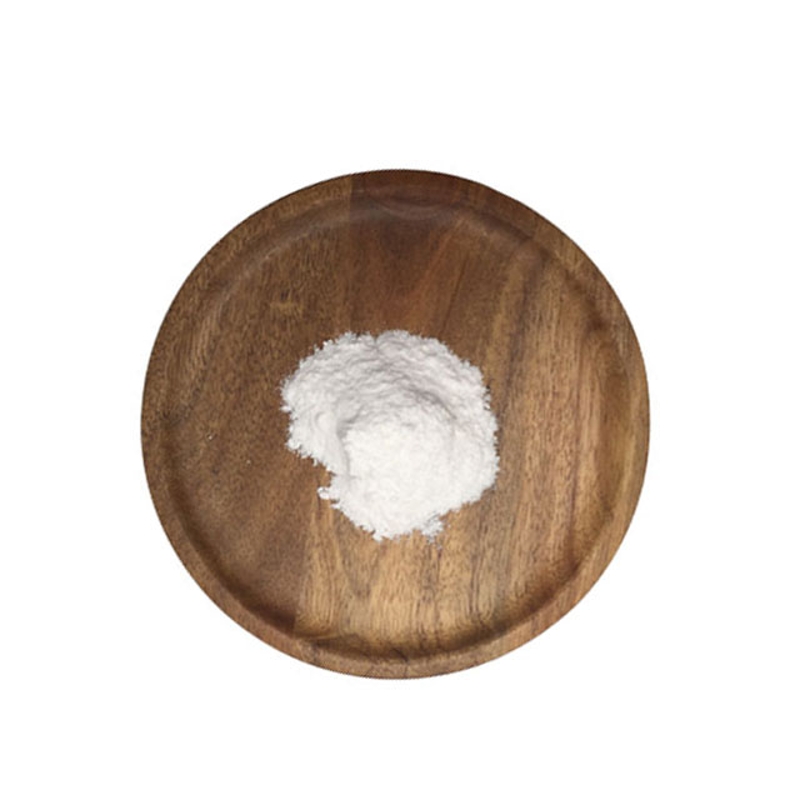-
Categories
-
Pharmaceutical Intermediates
-
Active Pharmaceutical Ingredients
-
Food Additives
- Industrial Coatings
- Agrochemicals
- Dyes and Pigments
- Surfactant
- Flavors and Fragrances
- Chemical Reagents
- Catalyst and Auxiliary
- Natural Products
- Inorganic Chemistry
-
Organic Chemistry
-
Biochemical Engineering
- Analytical Chemistry
- Cosmetic Ingredient
-
Pharmaceutical Intermediates
Promotion
ECHEMI Mall
Wholesale
Weekly Price
Exhibition
News
-
Trade Service
This article involves professional knowledge and is only for medical professionals to read for reference.
Adhere to and standardize medication "Doctor, my fungal vaginitis (VVC) is uncomfortable and itchy.
What kind of medicine can I use?" VVC can be regarded as a very common gynecology Illness is indeed a nightmare for many women.
It has been reported in the literature that about 10%-15% of asymptomatic women have colonization of Candida in the vagina, and 70%-75% of women have suffered from VVC at least once in their lives, of which 50% have experienced more than one relapse, and about 5% -10% may evolve into recurrent VVC[1-3].
01VVC, why do you love relapse so much? VVC is an inflammatory process caused by Candida invading the superficial epithelial cells of the vulva and (or) vagina.
Diabetes and postmenopausal patients receiving estrogen therapy, pregnant women, etc.
are the main groups prone to fungal vaginitis.
The patient's clinical manifestations are more leucorrhea, abnormal genital itching, accompanied by a burning sensation, and it is easy to relapse after treatment.
There are many factors influencing its onset.
Unclean sex life, internal environment disorders, disease factors, and the abuse of antibiotics will increase the probability of women suffering from fungal vaginitis.
The main pathogen is Candida albicans, which is a single-celled fungus.
02 Drug treatment is very simple The drugs used to treat VVC inflammation are mainly antifungal drugs, including azole drugs (triazoles and imidazoles) and polyene drugs.
Azole drugs can hinder the synthesis of ergosterol in fungal cell membranes, leading to changes in fungal cell membrane permeability and reduced fluidity, impairing the function of certain membrane-bound proteases, and ultimately inhibiting fungal growth.
The main varieties are itraconazole and flucan.
Azole, ketoconazole, clotrimazole, econazole and miconazole [4].
According to the "Administrative Measures for the Classification of Prescription Drugs and Over-the-Counter Drugs (Trial)" (formerly State Drug Administration Order No.
10), after the State Drug Administration organized demonstration and review, Miconazole Nitrate vaginal tablets were converted from prescription drugs to non-prescription drugs.Miconazole nitrate plays an important role in the treatment of candidal vaginitis.
Indications: fungal vaginitis.
Domestic and foreign guidelines recommend miconazole nitrate for the treatment of fungal vaginitis, but the treatment plan is slightly different, as follows: The US CDC believes that a short course of topical azole medication can effectively treat simple VVC.
Both the new and old European guidelines emphasize that vaginal and oral medications have the same curative effect and good results in the treatment of VVC; standard single-dose and long-term treatment have the same curative effect; pregnancy with VVC recommends topical azole therapy for one week.
What is the difference between miconazole nitrate suppository and miconazole nitrate vaginal tablets? Vaginal suppositories are commonly used in the treatment of vaginitis.
When the concentration is 4mg/L, it is effective against most of the fungi isolated clinically.
The formulation characteristics of topical medication [8]: First, because the formulation can take effect locally, the dose used to achieve the same curative effect is significantly reduced; secondly, vaginal topical medication can avoid or reduce systemic adverse reactions; secondly, the vaginal local blood vessel distribution is abundant The blood flows through the perineal venous plexus to the perineal vein, and finally to the vena cava, which can avoid the liver first-pass effect of the drug, and the bioavailability of the preparation is high.
Compared with suppositories, vaginal tablets of miconazole nitrate have many advantages [9]: 1.
Easy to use, stable quality, and high degree of mechanization in production; 2.
Compared with suppositories, it overcomes the temperature of the suppository substrate.
After the effect is melted, it will be lost together with the drug, which will affect the curative effect, contaminate the clothing and the patient's discomfort; 3.
The bioadhesive vaginal tablet improves the anti-discharge ability of the preparation, prolongs the residence time in the vagina, and is beneficial to improve the bioavailability.
Supplementary standard medication research found that early diagnosis and clear infection of the type of fungus is essential for choosing the right drug for antifungal treatment [10].
A variety of reasons can lead to over-treatment and under-treatment in the clinic.
There are still many patients who abuse antifungal drugs, which has led to the increasing resistance of Candida albicans to clinically commonly used antifungal drugs.
The occurrence of these irregular medications should be avoided as much as possible, the guidelines should be followed, the diagnosis should be confirmed as soon as possible, the appropriate antibacterial drugs should be selected, and the medication should be standardized.
References: 1.
Jack D.
Sobel and Sabastian Faro and Rex W.
Force and Betsy Foxman and William J.
Ledger and Paul R.
Nyirjesy and Barbara D.
Reed and Paul R.
Summers.
Vulvovaginal candidiasis: Epidemiologic, diagnostic, and therapeutic considerations[J].
American Journal of Obstetrics and Gynecology, 1998.
2.
Sobel JD.
Genital candidiasis[J].
Medicine, 2010, 33(10):62-65.
3.
Sobel JD.
Vulvovaginal candidosis[J].
Lancet, 2007, 369 (9577):1961-1971.
4.
Zhang Chunxia, Chen Qinghua.
Research progress of vaginitis treatment drugs and their external preparations[J].
World Clinic Drugs, 2010, 31(6):381-386.
5.
Sanford.
Sanford Antimicrobial Treatment Guidelines (Second Edition)[M].
People's Medical Publishing House, 2018.
6.
Wang Chen, Wang Huihui, Li Huanrong, et al.
Interpretation of "2018 European International STD Control Alliance/World Health Organization Guidelines for the Management of Vaginal Discharge (Vaginal Inflammation)" [J].
Chinese Journal of Practical Gynecology and Obstetrics, 2018, 34(12):1360-1365.
7.
Wang Chen, Fan Aiping, Xue Fengxia.
Interpretation of "2015 U.
S.
Centers for Disease Control and Prevention Guidelines for Diagnosis and Treatment of Vaginal Inflammation"[J].
International Journal of Obstetrics and Gynecology, 2015, 42(006):676-679.
8.
Zhang Chunxia, Chen Qinghua.
Research progress of vaginitis treatment drugs and their topical preparations[J].
World Clinic Drugs, 2010, 31(6):381-386.
9.
Lu Jiwei, Pei Yuanying.
Development of dosage forms of vaginal drug delivery system[J].
Chinese Journal of Clinical Pharmacy, 2003, 012(002):123-127.
10.
Anonymous.
Research progress on the pathogenesis and drug resistance mechanism of Candida vaginitis[J].
Chinese General Practice, 2017, 11(v.
15):138-141.
Adhere to and standardize medication "Doctor, my fungal vaginitis (VVC) is uncomfortable and itchy.
What kind of medicine can I use?" VVC can be regarded as a very common gynecology Illness is indeed a nightmare for many women.
It has been reported in the literature that about 10%-15% of asymptomatic women have colonization of Candida in the vagina, and 70%-75% of women have suffered from VVC at least once in their lives, of which 50% have experienced more than one relapse, and about 5% -10% may evolve into recurrent VVC[1-3].
01VVC, why do you love relapse so much? VVC is an inflammatory process caused by Candida invading the superficial epithelial cells of the vulva and (or) vagina.
Diabetes and postmenopausal patients receiving estrogen therapy, pregnant women, etc.
are the main groups prone to fungal vaginitis.
The patient's clinical manifestations are more leucorrhea, abnormal genital itching, accompanied by a burning sensation, and it is easy to relapse after treatment.
There are many factors influencing its onset.
Unclean sex life, internal environment disorders, disease factors, and the abuse of antibiotics will increase the probability of women suffering from fungal vaginitis.
The main pathogen is Candida albicans, which is a single-celled fungus.
02 Drug treatment is very simple The drugs used to treat VVC inflammation are mainly antifungal drugs, including azole drugs (triazoles and imidazoles) and polyene drugs.
Azole drugs can hinder the synthesis of ergosterol in fungal cell membranes, leading to changes in fungal cell membrane permeability and reduced fluidity, impairing the function of certain membrane-bound proteases, and ultimately inhibiting fungal growth.
The main varieties are itraconazole and flucan.
Azole, ketoconazole, clotrimazole, econazole and miconazole [4].
According to the "Administrative Measures for the Classification of Prescription Drugs and Over-the-Counter Drugs (Trial)" (formerly State Drug Administration Order No.
10), after the State Drug Administration organized demonstration and review, Miconazole Nitrate vaginal tablets were converted from prescription drugs to non-prescription drugs.Miconazole nitrate plays an important role in the treatment of candidal vaginitis.
Indications: fungal vaginitis.
Domestic and foreign guidelines recommend miconazole nitrate for the treatment of fungal vaginitis, but the treatment plan is slightly different, as follows: The US CDC believes that a short course of topical azole medication can effectively treat simple VVC.
Both the new and old European guidelines emphasize that vaginal and oral medications have the same curative effect and good results in the treatment of VVC; standard single-dose and long-term treatment have the same curative effect; pregnancy with VVC recommends topical azole therapy for one week.
What is the difference between miconazole nitrate suppository and miconazole nitrate vaginal tablets? Vaginal suppositories are commonly used in the treatment of vaginitis.
When the concentration is 4mg/L, it is effective against most of the fungi isolated clinically.
The formulation characteristics of topical medication [8]: First, because the formulation can take effect locally, the dose used to achieve the same curative effect is significantly reduced; secondly, vaginal topical medication can avoid or reduce systemic adverse reactions; secondly, the vaginal local blood vessel distribution is abundant The blood flows through the perineal venous plexus to the perineal vein, and finally to the vena cava, which can avoid the liver first-pass effect of the drug, and the bioavailability of the preparation is high.
Compared with suppositories, vaginal tablets of miconazole nitrate have many advantages [9]: 1.
Easy to use, stable quality, and high degree of mechanization in production; 2.
Compared with suppositories, it overcomes the temperature of the suppository substrate.
After the effect is melted, it will be lost together with the drug, which will affect the curative effect, contaminate the clothing and the patient's discomfort; 3.
The bioadhesive vaginal tablet improves the anti-discharge ability of the preparation, prolongs the residence time in the vagina, and is beneficial to improve the bioavailability.
Supplementary standard medication research found that early diagnosis and clear infection of the type of fungus is essential for choosing the right drug for antifungal treatment [10].
A variety of reasons can lead to over-treatment and under-treatment in the clinic.
There are still many patients who abuse antifungal drugs, which has led to the increasing resistance of Candida albicans to clinically commonly used antifungal drugs.
The occurrence of these irregular medications should be avoided as much as possible, the guidelines should be followed, the diagnosis should be confirmed as soon as possible, the appropriate antibacterial drugs should be selected, and the medication should be standardized.
References: 1.
Jack D.
Sobel and Sabastian Faro and Rex W.
Force and Betsy Foxman and William J.
Ledger and Paul R.
Nyirjesy and Barbara D.
Reed and Paul R.
Summers.
Vulvovaginal candidiasis: Epidemiologic, diagnostic, and therapeutic considerations[J].
American Journal of Obstetrics and Gynecology, 1998.
2.
Sobel JD.
Genital candidiasis[J].
Medicine, 2010, 33(10):62-65.
3.
Sobel JD.
Vulvovaginal candidosis[J].
Lancet, 2007, 369 (9577):1961-1971.
4.
Zhang Chunxia, Chen Qinghua.
Research progress of vaginitis treatment drugs and their external preparations[J].
World Clinic Drugs, 2010, 31(6):381-386.
5.
Sanford.
Sanford Antimicrobial Treatment Guidelines (Second Edition)[M].
People's Medical Publishing House, 2018.
6.
Wang Chen, Wang Huihui, Li Huanrong, et al.
Interpretation of "2018 European International STD Control Alliance/World Health Organization Guidelines for the Management of Vaginal Discharge (Vaginal Inflammation)" [J].
Chinese Journal of Practical Gynecology and Obstetrics, 2018, 34(12):1360-1365.
7.
Wang Chen, Fan Aiping, Xue Fengxia.
Interpretation of "2015 U.
S.
Centers for Disease Control and Prevention Guidelines for Diagnosis and Treatment of Vaginal Inflammation"[J].
International Journal of Obstetrics and Gynecology, 2015, 42(006):676-679.
8.
Zhang Chunxia, Chen Qinghua.
Research progress of vaginitis treatment drugs and their topical preparations[J].
World Clinic Drugs, 2010, 31(6):381-386.
9.
Lu Jiwei, Pei Yuanying.
Development of dosage forms of vaginal drug delivery system[J].
Chinese Journal of Clinical Pharmacy, 2003, 012(002):123-127.
10.
Anonymous.
Research progress on the pathogenesis and drug resistance mechanism of Candida vaginitis[J].
Chinese General Practice, 2017, 11(v.
15):138-141.







